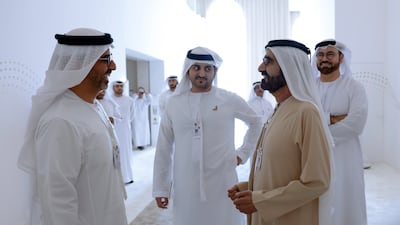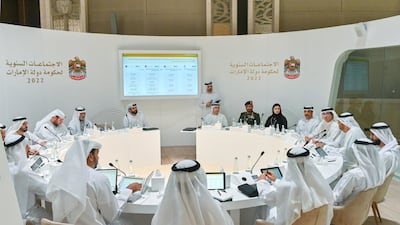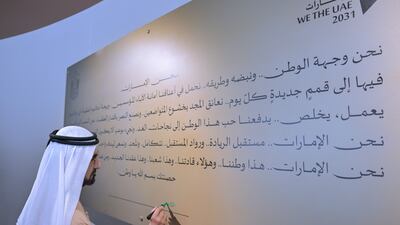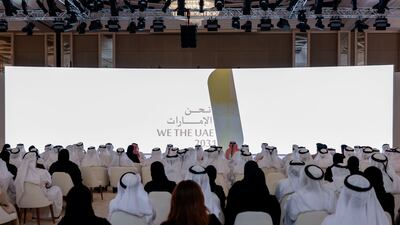A lot can happen during 10 years in the UAE. Since 2012, the country’s population has grown by 700,000 people, consolidated its reputation as a global hub for business, energy and logistics and convened major international gatherings such as Dubai Expo 2020.
On Tuesday, Sheikh Mohammed bin Rashid, Prime Minister and Ruler of Dubai, gave the world an idea about what the next decade will include, during an annual two-day government meeting of the nation’s most senior officials that set out a new 10-year strategy. It is being called We The UAE 2031.
Key priorities outlined by Sheikh Mohammed include generating more jobs, protecting the environment and creating a more digital, efficient society. Of particular importance are the future of education, legal reform and a strong economy.
The rise of a sophisticated education sector is one of the country’s most remarkable feats over the past 50 years. It is also strategically crucial for the future. With a constant need for talented workers to harness the country’s vast economic potential, institutions, from early years to advanced studies, are vital.
Schools have also proved to be key building blocks for the UAE’s tolerant, diverse society. A recent report by Dubai’s Knowledge and Human Development Authority showed that 60 per cent of Emiratis go to American-curriculum schools. In terms of all students, the Indian system is the second-most popular overall, after the British curriculum. Ten per cent of the emirate’s teachers are Egyptian. Very few countries can boast such a diverse education sector. However, the teaching of the Arabic language, UAE identity and culture are also crucial for a robust education sector.
On the subject of legal reform as part of We The UAE 2031, Maryam Al Hammadi, secretary general of the Cabinet, explained that there was a "new vision for the legislative process". This follows a series of other major legal reforms in recent years. In November 2021, for example, the government outlined a series of historic changes that included measures to allow investors and entrepreneurs to establish and own onshore companies in almost all sectors, as well as new regulations to increase protection for domestic workers.
On the economy, Dr Sultan Al Jaber, Minister of Industry and Advanced Technology, said the new 2031 strategy would include a "comprehensive Emirati industrial movement led by vital development sectors", which would grow the industrial sector to Dh300 billion, in line with Operation 300bn, an industrial strategy released last March that, alongside other reforms, allows for 100 per cent foreign ownership of projects. We The UAE 2031 also aims to double the gross domestic product from Dh1.49 trillion to Dh3tn.
But 2031 was not the only date on the minds of UAE officials at the meeting. In his keynote address, Mohammed Al Gergawi, Minister of Cabinet Affairs, spoke about how this update was a step in the longer journey towards the Emirates’ centennial 2071 plan.
This decades-long process will be driven by concrete actions such as those that are seen in We The UAE 2031, but, according to Mr Al Gergawi, a “new culture in government based on flexibility, proactive, integration and realism at the federal and local levels", and a “positive role maintaining peace and stability”, will also be crucial.
No one can fully predict where the future will take us, or the external factors that will come into play. But since its foundation in 1971, the country has shown that it is capable of setting and sticking to ambitious development plans. That is why the Emirates stands in good stead as it prepares for the next 10 years, and, many more decades ahead.











